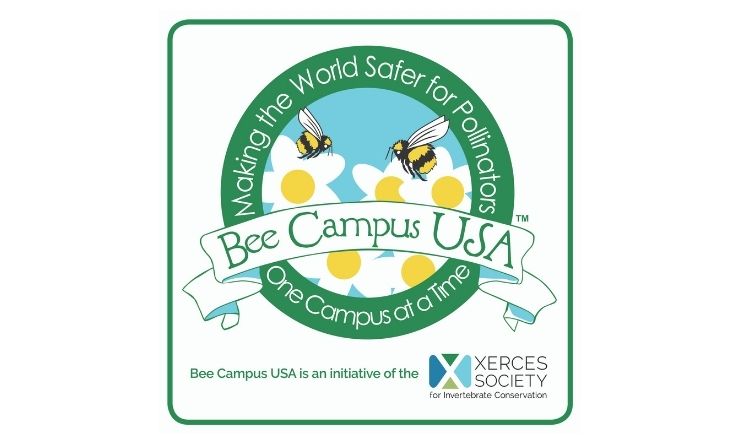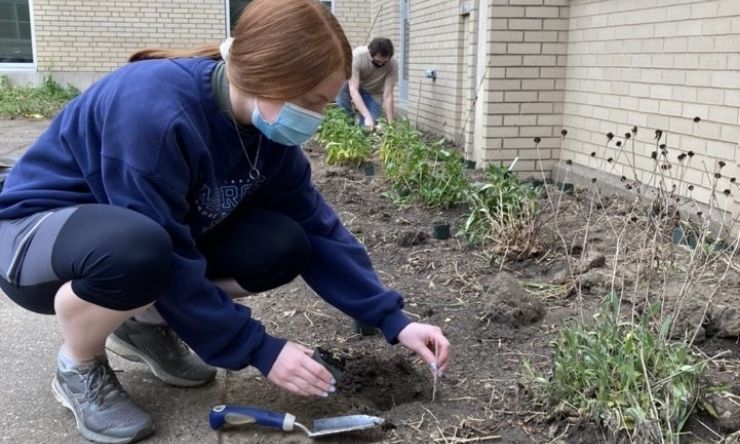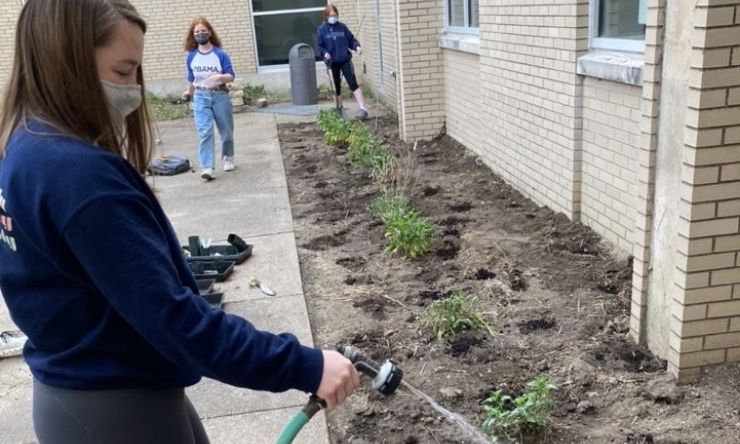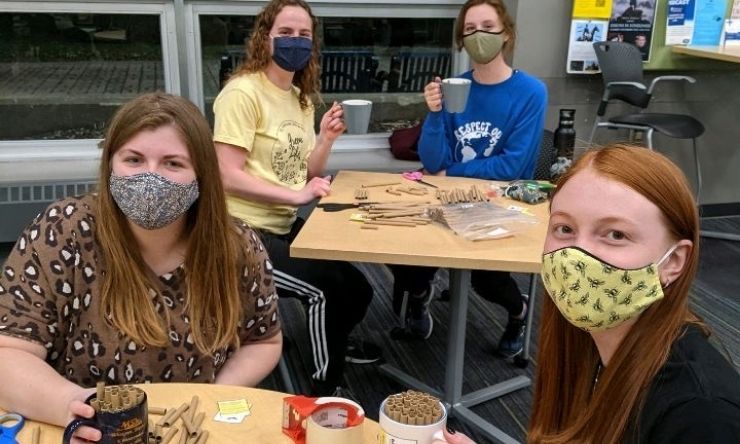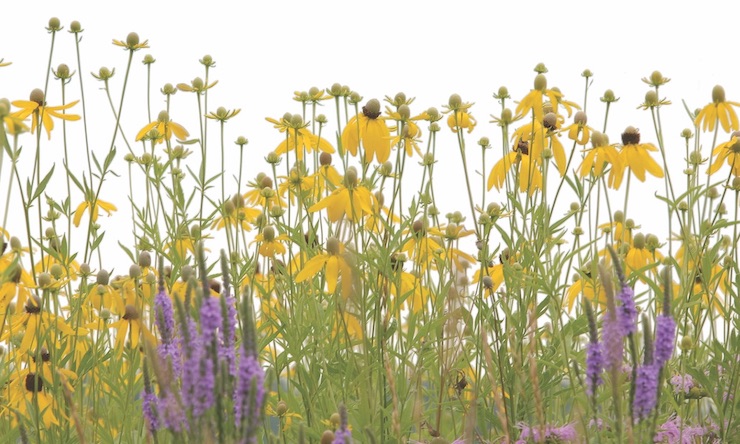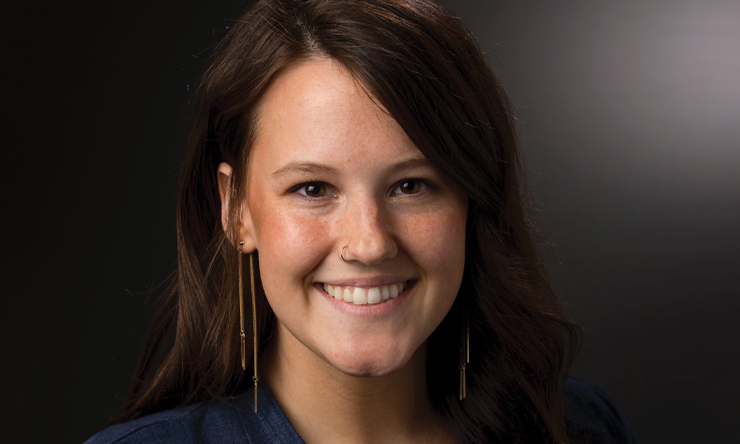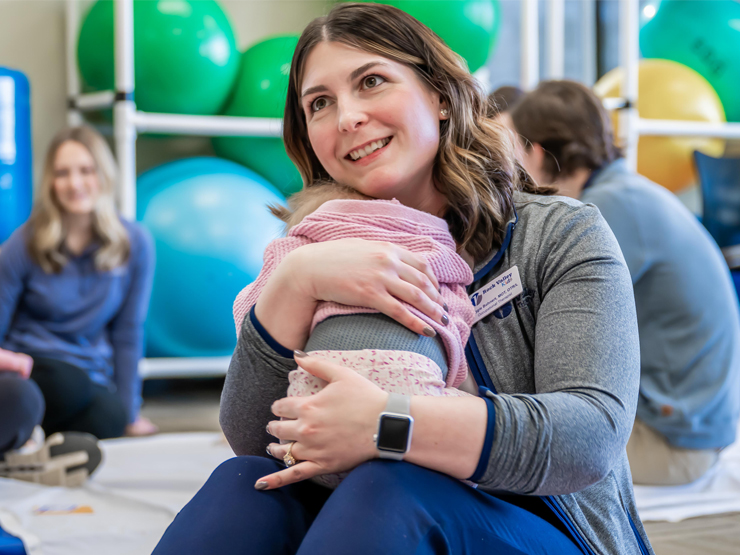Call it a stroke of serendipity: the home of the Fighting Bees is now truly, and officially, a Bee Campus.
St. Ambrose University is now a certified Bee Campus USA® affiliate, making it one of only three colleges in Iowa recognized by the Xerces Society for Invertebrate Conservation for taking steps to protect and conserve native pollinators. The Society also recognizes communities, and there is only one Bee City USA affiliate in Iowa, the city of Mount Vernon.
Earning certification was one of the first goals set by the St. Ambrose University Sustainability Committee, which was re-established in early 2020 to seek solutions and adopt stewardship practices that will sustain the world today and allow it to thrive for the generations of tomorrow.
According to Bee City, pollinators are a keystone species in essentially every ecosystem on Earth, enabling the reproduction of over 85 percent of all flowering plants and 67 percent of crops. There are more than 20,000 described species of bees globally, and about 3,600 species of bees native to the United States. While bees are the most important pollinator, butterflies, moths, beetles, flies, wasps, bats, and hummingbirds also contribute to pollination.
Research has shown significant declines in native pollinator populations. Globally, up to 40 percent of pollinator species on earth are at risk of extinction in the coming years as a result of habitat loss, the use of pesticides, and climate change, according to Bee City.
Those are some of the factors believed to play a role in Colony Collapse Disorder, which occurs when the majority of worker bees in a colony disappear, leaving behind the queen and a few nurse bees, according to the U.S. Environmental Protection Agency. Without worker bees, a hive will die.
Fighting for the Bees
SAU is now a certified Bee Campus USA® affiliate, making it one of only three colleges in Iowa recognized by the Xerces Society for Invertebrate Conservation for taking steps to protect and conserve native pollinators.
As a Bee Campus, SAU is required to: establish a committee to advocate for pollinators; increase native plantings on campus and provide more nest sites; create and adopt an integrated pest management plan; reduce pesticide use and expand non-chemical pest management methods; and offer courses or continuing education events, as well as service learning opportunities.
"Through the certification process we came to realize many of those requirements are already being met by the university," said Dennis Tarasi, PhD, co-chair of the Sustainability Committee and assistant professor of Biology.
SAU greatly reduced the use of spray chemical pesticides and limited the use of granular products more than three years ago, he said. Native plants are used in campus landscaping whenever possible. Student members of Green Life and the SAU Enactus Team have created on-campus nesting sites and planted multiple pollinator gardens. And outdoor spaces, such as a prairie space located between Cosgrove and Rohlman residence halls, support and sustain pollinators.
Tarasi said the Bee Campus certification is an opportunity to do more and rally the greater community to act, too.
"We are hoping people come to recognize some of the challenges facing our food system. Colony collapse has affected a lot of pollinators, not just bees. Raising awareness of the concerns and creating dedicated plans for increasing native plantings and an integrated pest management plan can be used as a model for others in the region as to how they can also help pollinators in their plight," he said.
"As a university, we already are dedicating a lot of resources to sustainability efforts, but we can do more and we want to do more," he said. "A lot of people in the Quad Cities already know Green Life and the Sustainability Committee are doing these initiatives. I get emails from residents in the community asking how to compost, where to take yard trimmings, what are the best native prairie species to plant? It is very rewarding that they turn to the university for those answers, and this is an opportunity to further our standing as a sustainability leader in the regional community."
The Bee Campus certification was a first step for the committee, Tarasi said. "We've already started discussing where to go from here. This was one mile marker on a very long journey toward sustainability at the institution. We hope this creates momentum and sparks new initiatives. We can be doing so much more and we are hopeful we can continue to cultivate this perception and image that St. Ambrose University can and should be the leader in sustainability initiatives in the Quad Cities."
Share This Story

